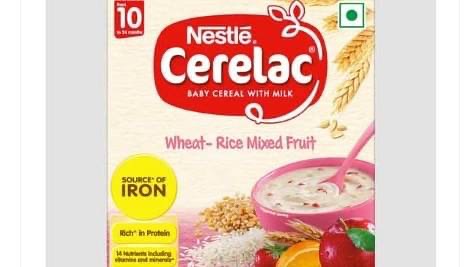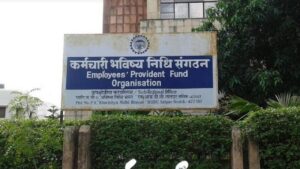India’s Baby Food Sector Faces Sweeping Quality Checks by FSSAI Amid Sugar Content Concerns

India's Baby Food Sector Faces Sweeping Quality Checks by FSSAI Amid Sugar Content Concerns
This move, initially sparked by allegations against Nestlé for high sugar levels in its baby foods, has now cast a wider net on industry practices which should be followed by all brands that could be potentially compromising child health in some way.
25 April 2024
By Ishika Kumar
The Food Safety and Standards Authority of India (FSSAI) has intensified scrutiny across all baby food brands, signalling a regulatory clampdown on discrepancies in the sugar content of infant products sold in the country in response to the increasing consumption of packaged foods driven by e-commerce and changing consumer lifestyles in India.
This move, initially sparked by allegations against Nestlé for high sugar levels in its baby foods, has now cast a wider net on industry practices which should be followed by all brands that could be potentially compromising child health in some way.
Food safety regulator FSSAI on Thursday said it is in the process of collecting pan-India samples of Nestle’s Cerelac baby cereals, amid this global report.
“It will take 15-20 days to complete the process,” Food Safety and Standards Authority (FSSAI) CEO G Kamala Vardhana Rao told a news agency on the sidelines of an Assocham event on food fortification.
The move comes with concerns about alleged high sugar content in Nestle’s baby food products expressed by both the consumer affairs ministry and the National Commission for Protection of Child Rights (NCPCR) after taking note of a global report published by Swiss NGO Public Eye. However, Nestle India has maintained its stance upon never compromising on compliance and reducing added sugar in baby food products in India by up to 30% depending on variants over the past five years.
The Genesis of a Nationwide Probe
It began with a startling disclosure. Reports surfaced suggesting that Nestlé, a dominant player in the global food industry, might be adding excessive sugar to its infant cereals and milk formulas in India. These reports were powered by findings from ‘Public Eye’—a Swiss advocacy group—suggesting that sugar levels in products like Cerelac and Nido varied significantly between countries; even the same products were found to have variations.
It has reportedly been found to contain 2.7 grams of sugar per serving which indicates the fact that products in developing regions contain markedly higher sugar content than those in affluent nations like the UK, Germany and Switzerland, which are comparatively found to have the standard portions of sugar content.
The FSSAI, responding to the uproar and after receiving a push from the Union Consumer Affairs Ministry, decided to expand its scrutiny beyond just Nestlé. They have embarked on an expedited and comprehensive evaluation of all infant food products sold in India, aiming to ensure compliance with the nation’s stringent safety standards.
Global Standards Vs. Local Reality
Nestlé has defended its formulations, highlighting its efforts to reduce added sugars by almost 30% over the past five years across its infant cereal portfolio. However, the company’s reassurances have done little to quell the storm. The debate centres around a fundamental question: Should global brands not maintain consistent health standards across all markets?
This query gains heavy weight considering the contrasting sugar levels in Nestlé products across different geographies. For instance, while baby foods in several European countries are marketed as sugar-free, the same cannot be said for similar products available in Asia, Africa and Latin America.
Health Implications and Consumer Trust
The health implications are profound and potentially far-reaching. Early childhood consumption of sugar-laden foods is linked to a plethora of health issues. The concern about sugar content in baby foods is also accentuated by the directives from the World Health Organization (WHO), which advises against the inclusion of sugars in the diets of children under 24 months of age. Early sugar exposure is linked to several long-term health issues including obesity, diabetes, tooth decay and heart disease later in life. These concerns are intensified in a country like India, where urban lifestyles and rising disposable incomes have led to increased consumption of packaged foods.
The issue also raises significant concerns regarding consumer trust. Parents, inherently seeking the best for their infants, rely on brand integrity and accurate labelling to make informed choices. The revelation that products widely perceived as healthy could harbour hidden sugars shakes the very foundation of consumer trust in food labelling and safety standards.
FSSAI’s Strategic Response
Recognizing the gravity of the situation, FSSAI’s approach has been twofold: firstly, to verify and rectify any discrepancies in sugar content declarations across all baby food brands, and secondly, to reassess and potentially tighten the regulatory framework governing these products.
The scientific committee tasked with this investigation is expected to release its findings and a comprehensive report within the next month, with stringent measures anticipated upon its outcome, against non-compliant brands.
Parallel to the baby food investigation, FSSAI has also commenced a separate probe into the quality of spices exported from India, following adverse reports from regulatory bodies in Singapore and Hong Kong. This broader initiative reflects a rigorous effort by FSSAI to bolster food safety standards, ensuring that both domestic consumers and international markets receive products that are safe, nutritious and compliant with the highest standards.
The Anticipated Way Forward
As the investigations continue, the results will likely have significant implications for both the baby food market and the overall broader food regulatory practices in India. For brands like Nestlé, the current crisis could serve as a pivotal moment to align their product formulations more closely with global health standards, consumer safety, ethical choices and quality product formulation, thereby reinforcing consumer trust and commitment to public health.
Moreover, the unfolding situation presents an opportunity for the Indian government and regulatory bodies like FSSAI to enhance their surveillance mechanisms and ensure that all food products—especially those intended for vulnerable populations like infants—adhere strictly to the safety and nutritional standards promised on their labels.
As India has positioned itself as one of the leading players in the global market, the commitment to maintaining rigorous food safety standards becomes not just a regulatory requirement, but a cornerstone in safeguarding public health and sustaining economic growth. The ongoing scrutiny in the baby food sector is a testament to the country’s resolve to uphold these values relentlessly.









